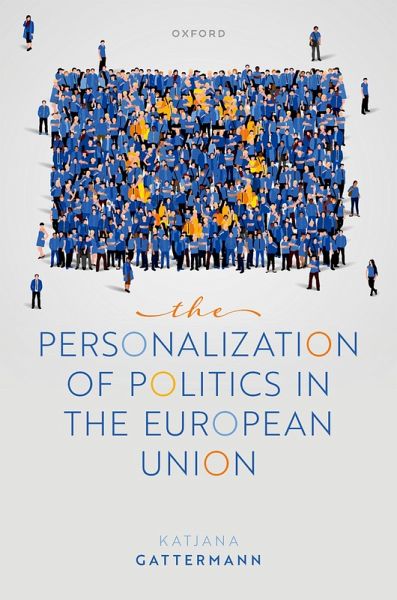
The Personalization of Politics in the European Union (eBook, PDF)
Versandkostenfrei!
Sofort per Download lieferbar
43,95 €
inkl. MwSt.
Weitere Ausgaben:

PAYBACK Punkte
22 °P sammeln!
The personalization of politics, whereby politicians increasingly become the main focus of political processes, is a prominent phenomenon in modern democracies that has received considerable scholarly attention in national politics. However, little is known about the scope, causes and consequences of personalization in European Union politics, although recent institutional and political developments suggest that such a trend is underway. This book sheds light onto this phenomenon by taking a comprehensive approach to understanding four key dimensions of personalization concerning institutions,...
The personalization of politics, whereby politicians increasingly become the main focus of political processes, is a prominent phenomenon in modern democracies that has received considerable scholarly attention in national politics. However, little is known about the scope, causes and consequences of personalization in European Union politics, although recent institutional and political developments suggest that such a trend is underway. This book sheds light onto this phenomenon by taking a comprehensive approach to understanding four key dimensions of personalization concerning institutions, media, politics, and citizens. In doing so, it relies on an innovative longitudinal and cross-country comparative research design and applies multiple methods. It argues that institutional personalization is a necessary but not sufficient pre-condition for media to increasingly report about individual politicians. It shows that media personalization fluctuates across country and over time, while Members of the European Parliament increasingly engage in personalized legislative and communicative behaviour. These developments are conditional upon domestic media and electoral systems and have limited effects on citizen attitudes and political awareness. The book concludes that as additional political actors gain formal individual responsibilities, European Union politics also becomes more complex to disentangle. Ultimately, institutions provide more effective cues than individual politicians both for media to inform citizens about European Union politics and for the latter to acquire information that may help them understand and evaluate European Union politics. These findings have important implications for the future of personalized politics in the European Union.
Dieser Download kann aus rechtlichen Gründen nur mit Rechnungsadresse in A, B, BG, CY, CZ, D, DK, EW, E, FIN, F, GR, HR, H, IRL, I, LT, L, LR, M, NL, PL, P, R, S, SLO, SK ausgeliefert werden.













